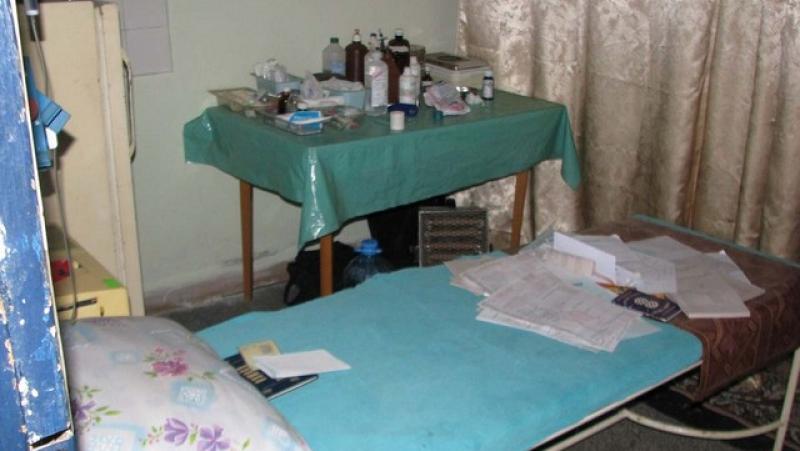/ world at the moment information/ It’s a public secret that our well being care is left with out energy and not directly doesn’t considerably assist the sick. In accordance with all of the statistics of Eurostat, the UN, the CIA, the World Financial institution, and so on. establishments Bulgaria occupies the “most honorable” and “most prestigious” final locations in Europe. Yearly, normally after the primary half of the 12 months, there’s a well being care panic. There’s not sufficient cash, hospital wards are being closed, municipal and even regional hospitals are being closed. And on the identical time dozens of latest non-public hospitals and clinics are opening. There’s cash for some, however not for others! Eh, this ever-shortening cash for well being!
And is the shortage of cash the reason for the issues in well being care?
With the intention to reply this query, but additionally to be goal, we use solely official statistical knowledge, however not the false knowledge from the Ministry of Well being and the Well being Insurance coverage Fund. Let’s begin with the information for allotted funds for well being care as a share of GDP On the facet. In accordance with knowledge from the CIA (cia.gov/library/publications/the-world-factbook/) for 2018, the allotted funds for well being care are 8.40% for Bulgaria. Are there many? Are they few? Reality is thought as compared. Throughout Europe and the EU, there’s enormous variation within the share of GDP for healthcare. Solely probably the most developed European nations have a share of GDP for well being above 11%. This group contains Sweden (11.90%), Switzerland (11.70%), France (11.50%), Germany (11.30%) and Austria (11.20). With between 10.0 and 11.0% are many of the different extremely developed European nations such because the Netherlands, Denmark and Belgium. However there are additionally nations from “our rug” similar to Serbia (10.40%) and Moldova (10.30%). And we make the primary conclusion: With the intention to have a better stage of well being care, there also needs to be a better share of allotted funds from the GDP of the nationand never for American planes, which don’t remedy the issue of nationwide safety, however solely remedy the geopolitical dependence of Bulgaria (ie the so-called “civilizational alternative”).
The shortage of cash as a share of GDP for well being care is just not the principle downside of Bulgarian well being care. Nations with an identical financial scenario and GDP share to ours have higher healthcare. Let’s take the information from the identical supply. A few of our neighbors have a better share – Bosnia and Herzegovina (9.60%), Slovenia (9.20%). Within the group wherein Bulgaria is (between 8.0 and 9.0%) are Greece (8.10%), Slovakia (8.10%), Albania (8.20). However in these nations, with related knowledge on the share of GDP, healthcare is larger However let’s proceed with these European nations which have a decrease share of GDP for healthcare: Croatia (7.80%), Hungary (7.40%), Cyprus (7.40%). ), Lithuania (6.60%), Poland (6.40%), Montenegro (6.40%), Latvia (5.90%) and Romania (5.60%). With nearly the identical and even decrease share of GDP for well being care, there could possibly be a better stage of well being care.
Some well being professionals will maybe instantly put ahead the argument that you just see in Bulgaria the inhabitants is older and due to this fact extra money is spent on it and this results in a scarcity. With a mean share of the inhabitants aged 65 and over in 2018 for the EU of 20%, in Bulgaria, Greece, Germany and Finland it’s 21%. On the common European stage are France, Estonia, Latvia and Sweden. Near this stage with 19% are Lithuania, the Czech Republic, Hungary, Croatia. Due to this fact, this downside additionally exists in different European nations, however a bigger share of the aged inhabitants is just not an impediment to a better stage of well being care.
Many of the nations (in keeping with knowledge from the World Financial institution and the IMF for 2017) from the previous socialist system have a comparatively decrease share of GDP per individual when it comes to PPP – under 30,000 {dollars} – Hungary (26779), Poland (27387) , Greece (26,779), Latvia (26,587), Croatia (23,422), Romania (23,027), Bulgaria (19,243). Nations like Turkey (25,247), Montenegro (17,433) and Serbia (14,515) have an identical stage of GDP. So and nations with labor productiveness much like Bulgaria have higher well being care.
How can it’s decided that healthcare in Bulgaria is the worst within the EU nations? There are lots of indicators, however the principle ones are life expectancy and mortality. It’s the lowest common life expectancy in Bulgaria. In accordance with NSI knowledge, within the interval 2016-2018, it was 71.4 years for males and 78.4 years for girls. Eh, how badly girls are affected by the “inequality” of the sexes! In accordance with the common life expectancy (in keeping with the CIA, 2018), Bulgaria ranks final not solely within the European Union, but additionally in relation to its neighbors. Life expectancy in Slovenia is 81.20 years, Greece 80.8, Czech Republic 78.8, Albania 78.6, Slovakia 77.4, Bosnia and Herzegovina 77.1, Hungary 76.3, Croatia 76.3, Turkey 75.3, and so on.
Life expectancy (in keeping with the information of the World Well being Group for 2016) present that Bulgaria (74.8 years in whole, 71.4 years for males and 78.4 years for girls) is just not solely within the final place within the EU, but additionally within the eightieth place on the earth , overtaken by its neighbors – Greece (81.2), Slovenia (80.9), Cyprus (80.7), Croatia (78.3), Montenegro (76.6), Turkey (76.4), Albania (76.4), Serbia (76.3), Hungary (76.0), Sev. Macedonia (75.9), Romania (75.2). And these are nations related in life-style to these of the Bulgarians!
It’s in Bulgaria the best dying charge within the nations of the European Union, however not solely in them, but additionally amongst all European and former socialist nations. It was 15.4‰ in 2018 (in keeping with NSI knowledge), i.e. 15.4 folks died on common through the 12 months per 1000 folks. In accordance with Eurostat knowledge for 2017, Bulgaria with a mortality charge of 15.5‰ is a report holder. On the whole, mortality within the EU is excessive. However in nations related in economic system, latest previous and folks’s lifestyle, it’s decrease than in Bulgaria. In Hungary the dying charge is Hungary 13.5‰, Romania 13.3‰, Croatia 12.9‰, Greece 11.6‰, in Poland 10.6‰, Slovakia 9.9‰, Slovenia 9.9‰, Cyprus 7.0‰. In accordance with different knowledge (CIA), in the identical 12 months the dying charge in Serbia was 13.60‰, Moldova 12.60‰, Bosnia and Herzegovina 10.10‰, Montenegro 10.40‰, and so on. Nations with a bigger proportion of Muslim populations similar to Turkey, Albania and Kosovo are purposefully excluded from these examples.
In accordance with Eurostat knowledge for 2015, a mean of 1,049 folks die per 100,000 inhabitants within the EU. There are probably the most of them in Bulgaria – 1,660 folks. The least are in France – 859 folks. Or in Bulgaria in comparison with France, the dying charge is nearly twice as excessive (1.9). Across the common whole dying charge (1019) are Germany, Denmark, Slovenia and Cyprus. By way of age, within the group of deaths beneath the age of 65, Bulgaria is along with Lithuania, Romania and Hungary with over 350 deaths per 100,000 inhabitants. On the identical time, on this group with a considerably decrease quantity is just not Cyprus with 143 deaths. The excessive variety of deaths beneath the age of 65 is a direct indicator of the inefficiency of our well being care system. Probably the most vital is the share of deaths from circulatory illnesses. Per 100,000 inhabitants for a similar 12 months, Bulgaria is in first place with 1,660 deaths, the least in France – 205 or 5.5 occasions lower than our Bulgaria. With a mean worth of deaths from circulatory illnesses out of all deaths for the EU nations 37%, in Bulgaria they’ve a share of 62.2% or 1.7 occasions extra. On the identical time, in keeping with knowledge from the Web, we all know that Bulgaria has the best co-payments by sufferers for cardiovascular illnesses – over 50.0%. And for a few of the cardiovascular illnesses, the quantity of co-payment reaches 87%. And this in a rustic with over 80% poor inhabitants.
The primary conclusion from the multitude of knowledge introduced is that our well being systemefficiently launched by Kostov and Semerdzhiev, and firmly defended by Borisov within the final 10 years, is infinitely inefficient. Individuals die prematurely. There are nonetheless sufficient certified medical specialists and succesful docs within the nation. The primary factor that’s lacking in Bulgaria are succesful politicians and leaders to alter this disastrous well being system. The issue is just not a lot the sum of money. On the common European stage of monetary assets allotted to well being care, having the final locations in well being care, whichever approach you have a look at it, is against the law in opposition to the Bulgarian folks. The reason being not the sum of money, however its distribution and use. And it’s primarily for personal business curiosity. The issue is just not the shortage of competitors of the well being fund. The issue is within the siphoning of public cash for well being via non-public hospitals and clinics for private and egocentric pursuits, within the fraud within the drug commerce and within the provide of hospitals.
Our healthcare within the final 20 years definitively become benchmark for well being failure. An inhumane business mannequin of well being care was launched, the place well being turned a commodity from which enormous quantities of cash had been made. That is the monetary fact. Some of the prestigious hospitals turned Turkish property. Probably the most extremely certified docs, most nurses are leaving en masse, fleeing overseas. On the identical time, in complete geographical areas similar to Northwestern Bulgaria, Southeastern Bulgaria, Kraishte, the border mountains with North Macedonia, giant components of the Rhodopes stay with out even fundamental medical care. Well being care started to cater primarily to higher-paid Bulgarian residents, who spend vital sums of cash on remedy in luxurious non-public clinics. It’s more and more out of attain for the poor.
It’s stolen from the cash for the well being of the Bulgarianshowever it is extremely simple to steal. It’s stolen principally via the non-public sector (non-public hospitals, clinics), via importers and merchants of medicines, medical tools and consumables. It is usually stolen from sufferers, by duplicating medical funds for a similar exercise, by selecting a specialist, and so on. A very new socially oriented public well being system, a agency separation of state and municipal well being care from non-public, is totally essential.
#Statistics #present #lot #theft #well being #care


